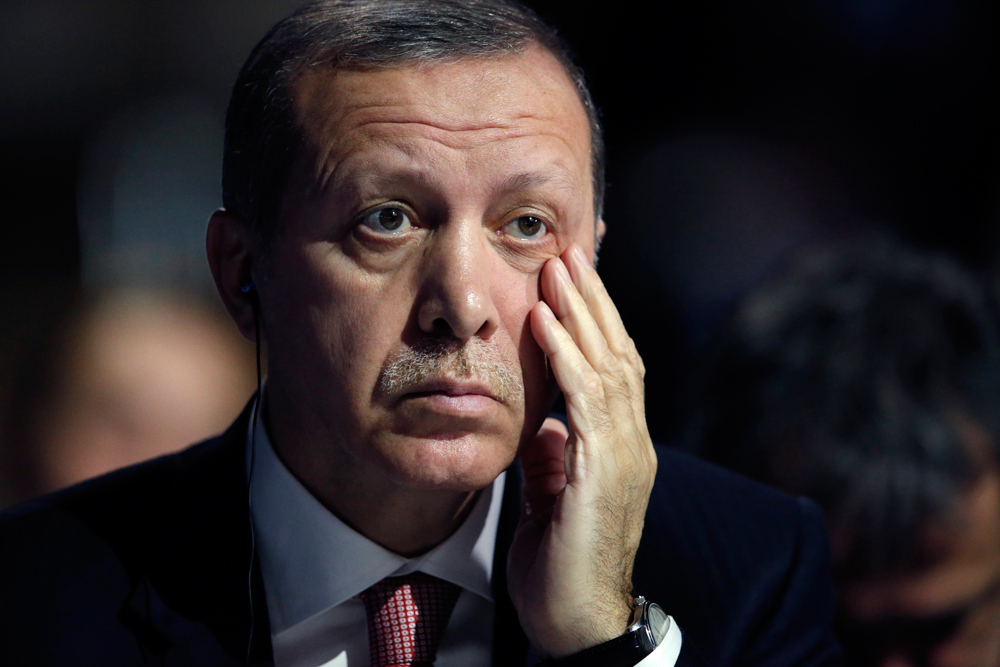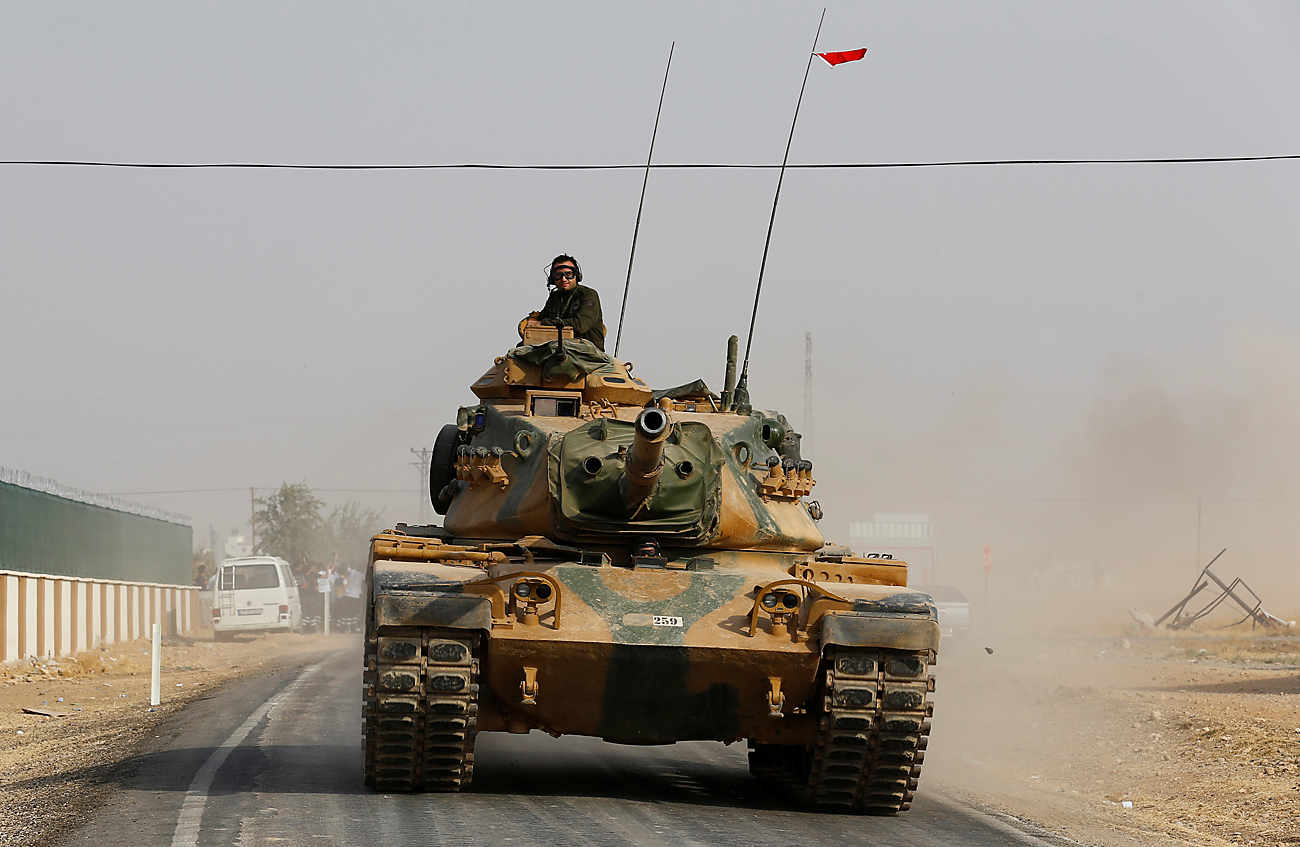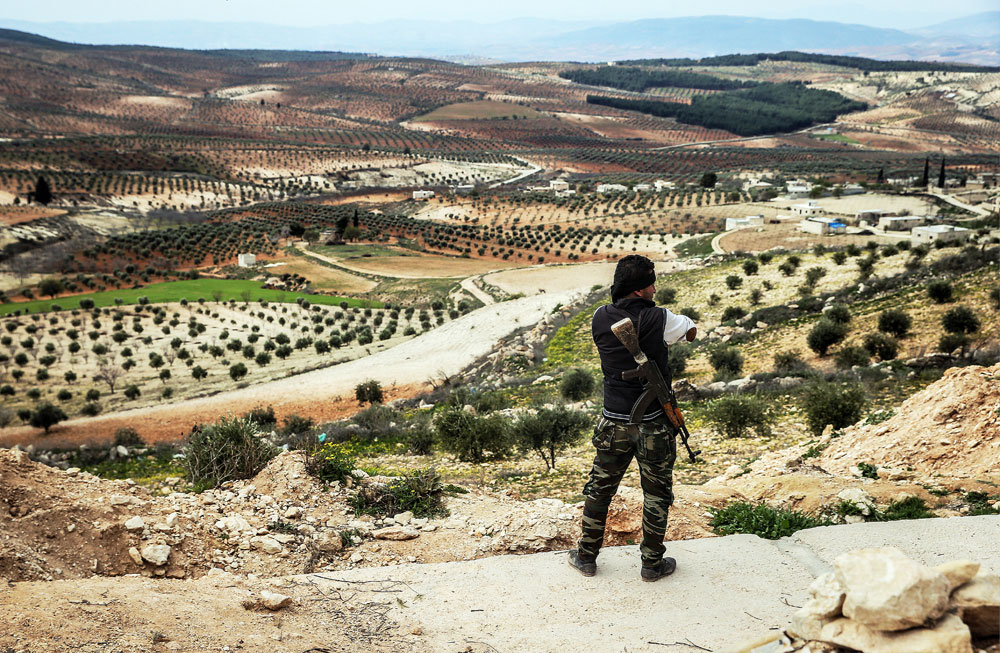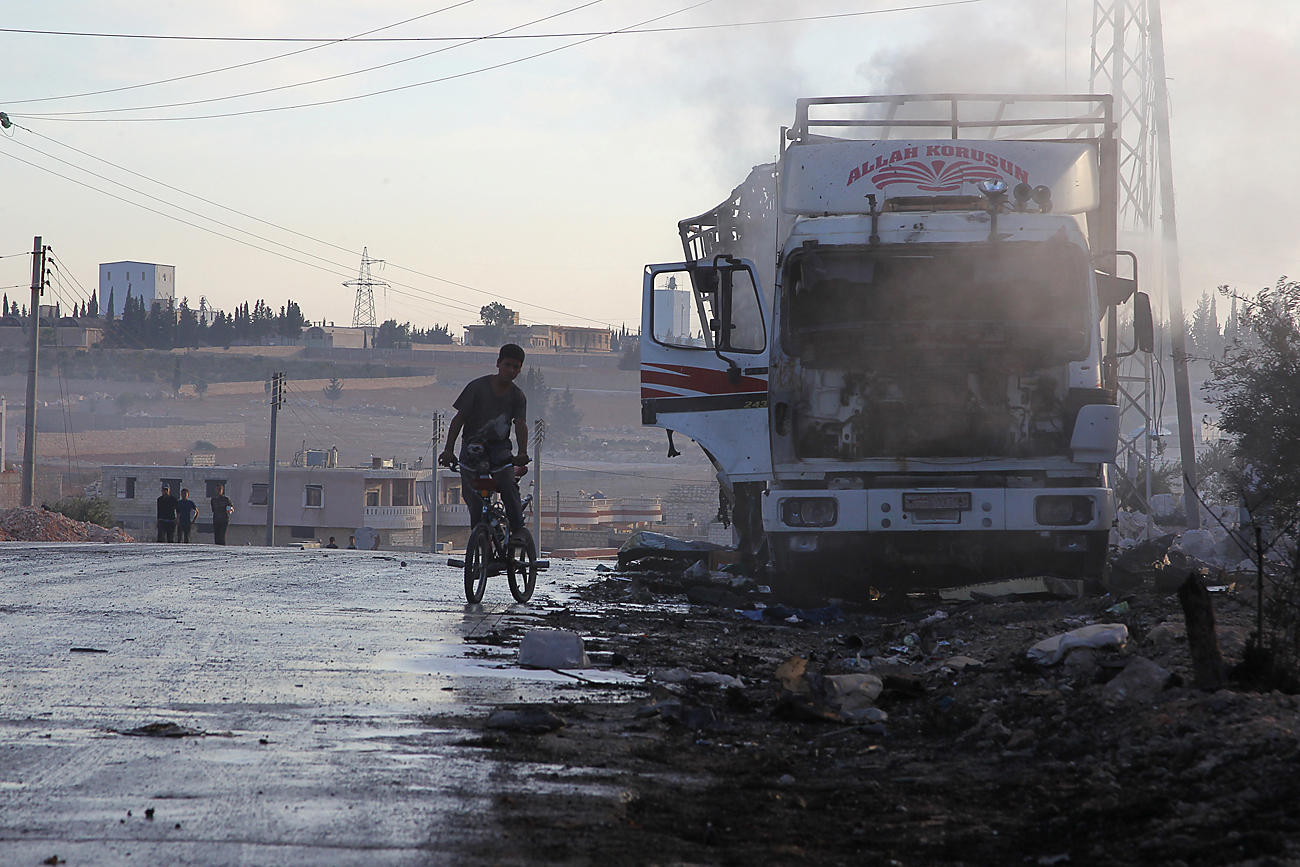Russian analysts skeptical about Russian-Turkish cooperation in Syria

Turkish Ambassador to the Russian Federation Umit Yardim attended the the presentation but left straight after the conclusion of the official segment of the event. Photo: Turkey's President Recep Tayyip Erdogan.
ReutersDespite a bid to revive the frozen relations between Moscow and Ankara, which the Russian and the Turkish authorities undertook after the Sept. 9 meeting between Russian President Vladimir Putin and his Turkish counterpart Recep Tayyip Erdogan, the two countries continue to have certain disagreements in their approach to the Syrian crisis.
That was the conclusion reached by experts from Russia’s Valdai Discussion Club, who authored a report called “The Middle East in a time of troubles: traumas of the past and challenges of the future,” which was presented in Moscow on Sept. 19.
Turkey has not given up its support of the regional forces that are hostile to Moscow, including Syrian opposition forces and some organizations that Russia considers to be terrorist, the authors of the report conclude.
Russia, for its part, is rendering diplomatic support to Kurdish forces in Syria, which at the moment control most of the Syrian-Turkish border and is voicing its concern over the Turkish military operation that started on Aug. 24.
“The main thing now is to ensure that the Turkish military operation [in Syria] does not turn into a further Turkish military penetration into Syrian territory,” said Vitaly Naumkin, president of the Russian Academy of Sciences’ Institute of Oriental Studies, an adviser to the UN special envoy on Syria and one of the authors of the Valdai report.
One of the reasons for Moscow’s mistrust, the report suggests, could be a certain “opportunism” on the part of some Middle East countries, which could bring the situation “to the brink of war or to a direct military confrontation” in the region.
“Overall, the absence of a strategic vision for the region, with regional powers primarily seeking to strengthen their position, and the failure to recognize ‘red lines’ and the acceptable limits of opportunism have created a situation where the regional actors mostly rely on military force […]. These processes tend to descend rapidly to brinkmanship or military confrontation,” reads the report.
Similar language was used to describe relations between Moscow and Ankara after the incident with the Russian Su-24M bomber that was shot down by the Turkish air force along the Syrian-Turkish border on Nov. 24, 2015, which revealed deeper contradictions between Russia and Turkey in the Syrian crisis.
Undiplomatic move?
Turkish Ambassador to the Russian Federation Umit Yardim, who attended the presentation of the report, left straight after the conclusion of the official segment of the event, deciding not to stay for the informal discussion with the gathered experts.
The Turkish envoy’s appeals to establish a close Russian-Turkish dialogue, which Yardim voiced during the Q&A session, failed to find support with Russian analysts, who expressed doubts that the Turkish military operation on Syrian territory had been fully agreed with the Russian authorities.
In his speech, the Turkish ambassador did not touch on the subject of the Turkish military operation on Syrian territory that Ankara launched on Aug. 24 with support from the Free Syrian Army and, according to some reports, from some radical units, in order to liberate the city of Jarablus from ISIS militants.
At the same time, Yardim stressed Turkey’s key role in settling the Syrian crisis. In his opinion, Ankara has a profound understanding of the problems of the Middle East.
Although Valdai club experts refrained from openly accusing Turkey of destabilizing the situation, the speech by the ambassador, who had shown an interest in the conclusions of the experts’ report, was received with skepticism.
“[…] one needs to rein in one’s zeal a bit and think of preserving, in future, the unity of the Syrian state,” Naumkin said in response to the ambassador’s speech.
Read more: Turkish military operation in Syria was no surprise to Russia, says Putin>>>
Subscribe to get the hand picked best stories every week
All rights reserved by Rossiyskaya Gazeta.
Subscribe
to our newsletter!
Get the week's best stories straight to your inbox


